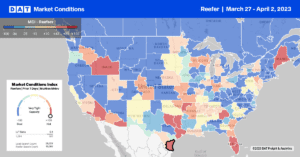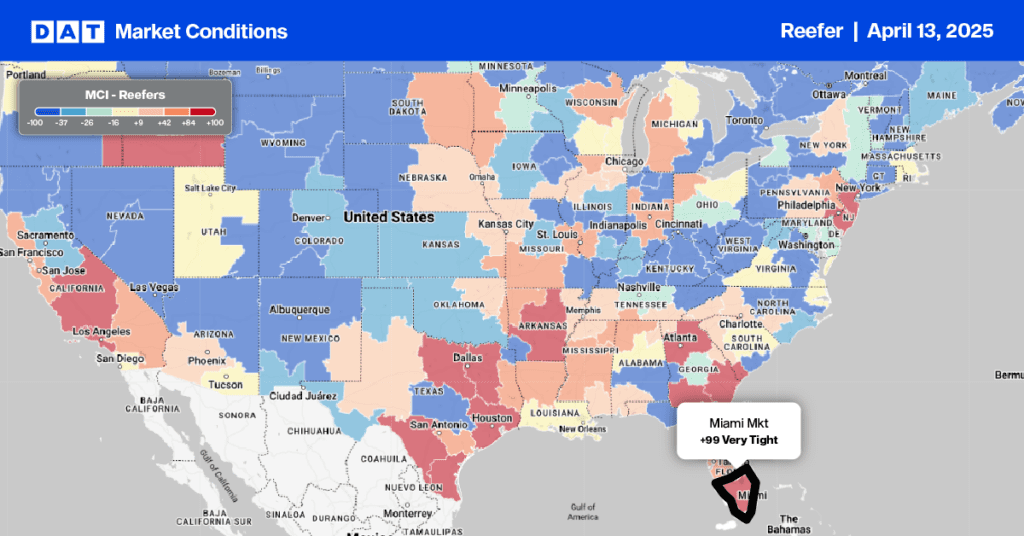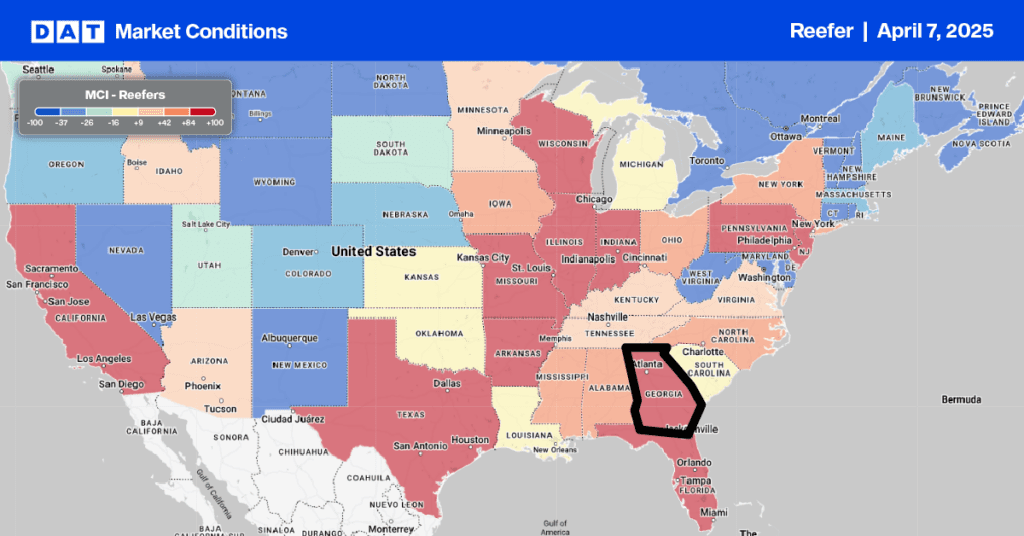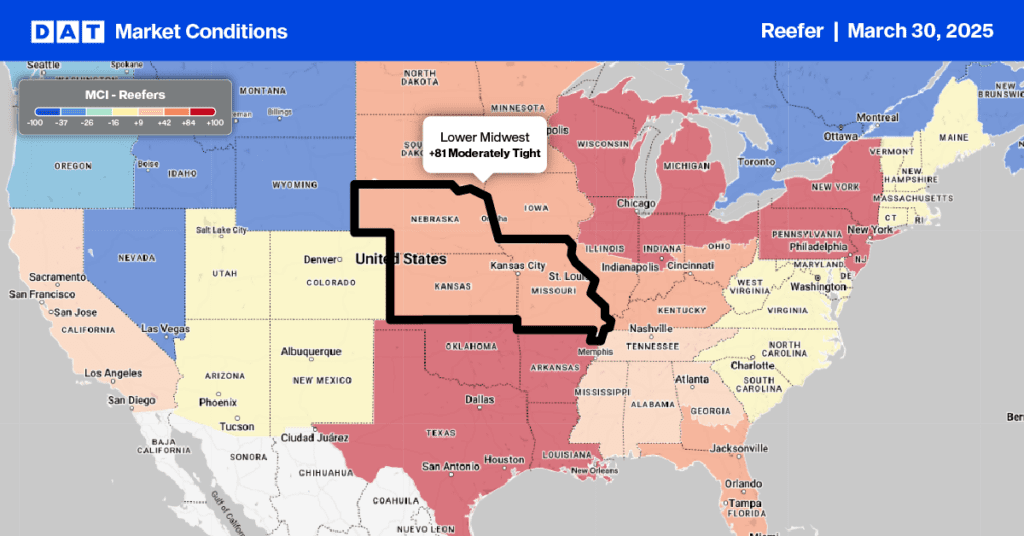Located in DAT’s Brooklyn, NY, freight market, the Hunts Point Produce Market (HPPM) is regarded as the largest produce market in the U.S., with roots dating back to 1790. Situated on nearly 120 acres in the Bronx, on its busiest day, typically right before Thanksgiving, it can handle 30 million pounds of produce. Thousands of varieties of fruits and vegetables arrive at the market daily, traveling by truck, plane, boat, and rail from farms in 29 states and 55 countries. According to HPPM, “more than 210 million packages of produce pass through the market yearly.” The market supplies produce to 60% of New York City, including 23,000 restaurants and 2,500 greengrocers.
Hunts Point is also the site for New York City’s New Fulton Fish Market, which replaced the 180-year-old fish market formerly located in downtown Manhattan. Over 800 industrial businesses, employing over 25,000 workers, are located on the peninsula. In addition to seafood, fruit, and vegetables, The Hunts Point Cooperative Market handles the production, processing, distribution, and sale of meat, poultry, and related products spanning 700,000 square feet of refrigerated space. Even though an estimated 90 million people live within a day’s drive by truck, HPPM serves approximately 25 million people in a 50-mile radius of New York.
Whichever way you look at it, many trucks and truckers work in a relatively small area. According to a 2017 study, there were 15,000 daily truck trips at HPPM, of which 80% (12,00) were outbound from the market. This suggests roughly 3,000 truck trips per day were loading inbound trucks from all over the country, with 44% arriving between 3:00 am and 7:00 am. The inbound-truck trip is for delivering food products to the distribution center, while the outbound truck trip is for hauling food products to grocery stores, restaurants, and other food venues as far away as Baltimore to the south and Boston to the north.
Market Watch
All rates cited below exclude fuel surcharges unless otherwise noted.
Boosted by 9% higher weekly truckload produce volume, outbound reefer spot rates in Florida increased by $0.02/mile to $1.44/mile last week, identical to 2019. In Lakeland, the largest reefer spot market in the state, volumes were up slightly along with spot rates, which increased by $0.01/mile to $1.33/mile for outbound loads. The high-volume lane from Lakeland to Atlanta reported March rates flat at $1.29/mile compared to the February average and $0.60/mile lower than the previous year.
On the West Coast in California, at $2.01/mile, reefer outbound spot rates are now $0.03/mile lower than in 2019, when reefer produce volumes were four times higher. The Ontario reefer market, the second largest in the state, reported 13% higher w/w volumes last week, but with a surplus of capacity, rates dropped $0.02/mile to $1.92/mile the previous week. Ontario to Stockton spot rates at $2.55/mile for March was just over $1.00/mile lower than the previous year. Even though volumes surged and increased by 38% w/w in Fresno last week, the state’s largest produce market, spot rates dropped for the fourth week to $1.59/mile.

Load to Truck Ratio (LTR)
Reefer load posts fell for the fourth week following last week’s 2% w/w decrease. Volumes are now just over half what they were a year ago, impacted by this year’s slower start to produce season, where weekly truckload volumes are currently around 6% lower y/y. Carrier equipment posts have been mostly flat for the last month, leaving the reefer load-to-truck (LTR) almost identical to the prior week at 2.70.
Spot Rates
Reefer linehaul rates dipped below $2.00/mile for the first time since April 2020 following last week’s $0.02/mile decrease. At $1.98/mile, the national average reefer linehaul rate is 29% lower than the previous year and around $0.11/mile higher than in 2019.


